Imagine a leaky bucket. You keep pouring water in (acquiring new customers), but it’s constantly draining out the bottom (customer churn). That’s the reality for many businesses: they spend a fortune attracting new customers, only to lose a staggering percentage of them after just one purchase.
The average business loses 20% of its customers annually simply by failing to prioritize retention. There’s a better way — and it’s far more profitable: implementing effective customer retention strategies.
What Is Customer Retention?
Customer retention is a company’s ability to keep its customers engaged and purchasing over a specific period of time. It’s a measure of how well a business satisfies and retains its existing customers, encouraging repeat business rather than losing them to competitors. It’s measured as a percentage — a high customer retention rate (e.g., 80% of 100 customers retained after a year) indicates strong customer loyalty and satisfaction, while a low rate signals problems that need immediate attention.
Why Is Customer Retention Important?
Customer retention is the bedrock of sustainable, profitable growth. It’s far more cost-effective to nurture existing relationships than to constantly chase new acquisitions. In fact, a mere 5% increase in retention can boost profits by a staggering 25% to 95%! Here are the key benefits of customer retention:
- Maximize lifetime value & profit: Loyal customers spend more, buy more often, and are more open to exploring your full range of offerings.
- Fuel organic marketing strategies: Satisfied customers become advocates, driving high-quality leads through word-of-mouth.
- Build competitive resilience: Loyal customers are less likely to switch, protecting your market share.
- Gain invaluable feedback: Long-term customers provide crucial insights to enhance your offerings.
- Boost upselling & cross-selling success: Existing customers are more receptive to premium and complementary products.
- Slash acquisition costs & increase marketing ROI: Retaining customers is far cheaper than acquiring new ones, freeing up resources for targeted campaigns.

It shouldn’t matter how or where the customer seeks their service resolution. You should be able to rise to the challenge and meet them anywhere they want.
Jeff Nicholson
10 Best Customer Retention Strategies You Can Implement Today

Here are 10 strategies you can incorporate into your customer retention program.
1. Show customers appreciation with rewards and loyalty programs
A well-structured loyalty program is one of the best ways to reward your customers and a key strategy to retain customers. But don’t just settle for basic discounts. Think bigger.
Start by clearly defining what you want to achieve — more frequent purchases, higher spending, or more referrals. Then, choose a reward system that fits.
Points-based programs are popular (think “1 point for every $1 spent”), but tiered systems (Bronze, Silver, Gold) with increasing benefits are even more engaging. You could also consider paid VIP programs for exclusive perks, or even value-based programs where rewards align with customer values (like donating to a charity).
The key is to offer appealing rewards. Think discounts, free products, early access to sales, exclusive content, or even unique experiences. Make it incredibly easy to join and use your program. Integrate it seamlessly into your website, app, and in-store experience. Promote it everywhere.
And don’t forget to track your performance to see what’s working. For example, you could offer “Double points on your birthday month!” or “Refer a friend and you both get $20 off.”

2. Deliver outstanding customer service
Exceptional customer service means being available where your customers are and when they need you — whether that’s through phone, email, live chat, social media, or in-app messaging. This is the “omnichannel” approach — consistent support across all channels.
Start by mapping out all the ways customers interact with your business. Then, choose the channels that are most important to your customers and where you can realistically provide excellent support. Train your customer service team thoroughly, empowering them to solve problems on the spot without making customers jump through hoops.
Use a customer relationship management (CRM) system to manage interactions and track support tickets. Set clear service level agreements (SLAs). For example, “Respond to emails within 24 hours.” And don’t forget self-service options.
Create a comprehensive knowledge base with FAQs and tutorials so customers can often find answers themselves. A good example is: “Our support team is available 24/7 via live chat.” Don’t just wait for problems to arise, make sure to reach out to customers who might be struggling, offering assistance before they even ask.
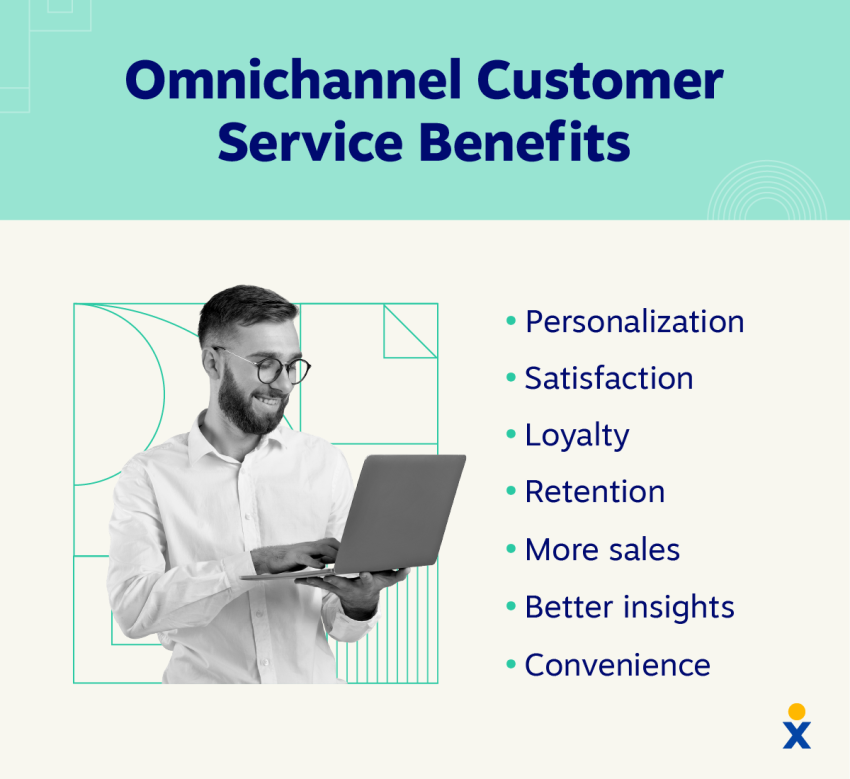
3. Personalize every interaction
Customers crave personalized experiences. Use the customer data you have like purchase history, website activity, and demographics, to make your communications and offers relevant.
Gather data ethically and transparently. Then, segment your audience into groups based on their behavior and customer preferences. Tailor your email marketing with personalized product recommendations (“Based on your recent purchase of [Product A], you might also like [Product B]”).
Customize your website or app to show different content based on their profile. Use dynamic content to display different offers based on customer data. And, of course, address customers by name and remember past interactions. You can even use AI-powered tools to deliver hyper-personalized recommendations.
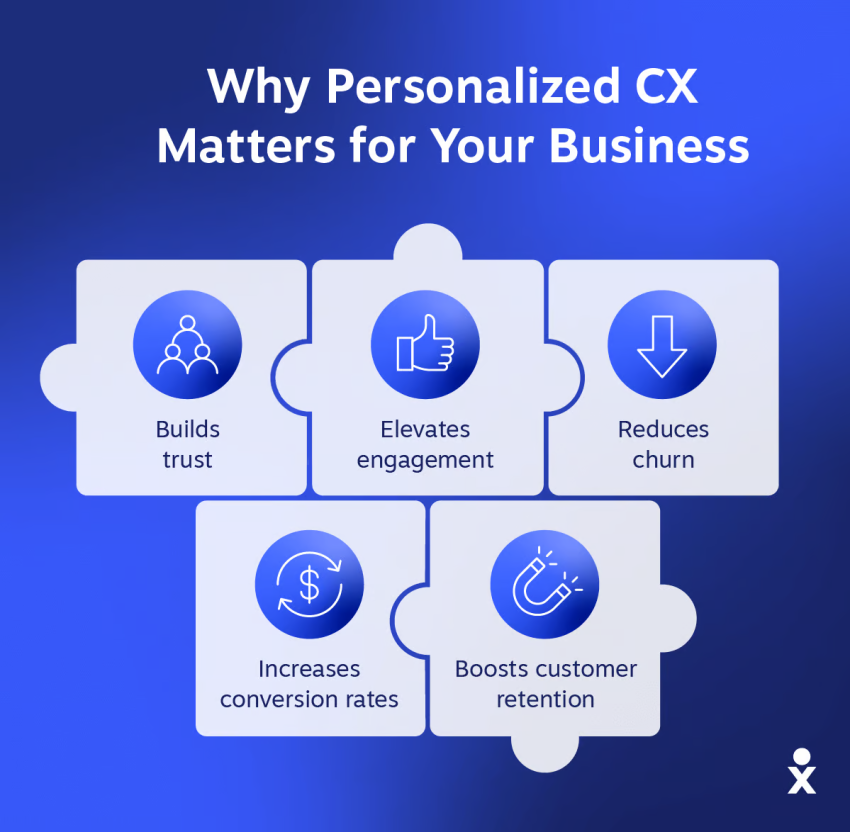
4. Build a customer community
Creating a sense of belonging can transform customers into passionate brand advocates. A community provides customers space to connect with your brand. Think of it as building a loyal tribe.
Choose your platform. Could be an online forum on your website, a private Facebook group, a Discord server, or in-person events. Define clear community guidelines to ensure a positive environment. Get the conversation started.
Ask questions, encourage participation, and moderate the community to keep things on track. Encourage user-generated content like photos, reviews, and tips. Offer exclusive content or discounts to community members. And most importantly, be present. Respond to questions and feedback actively to build brand loyalty.
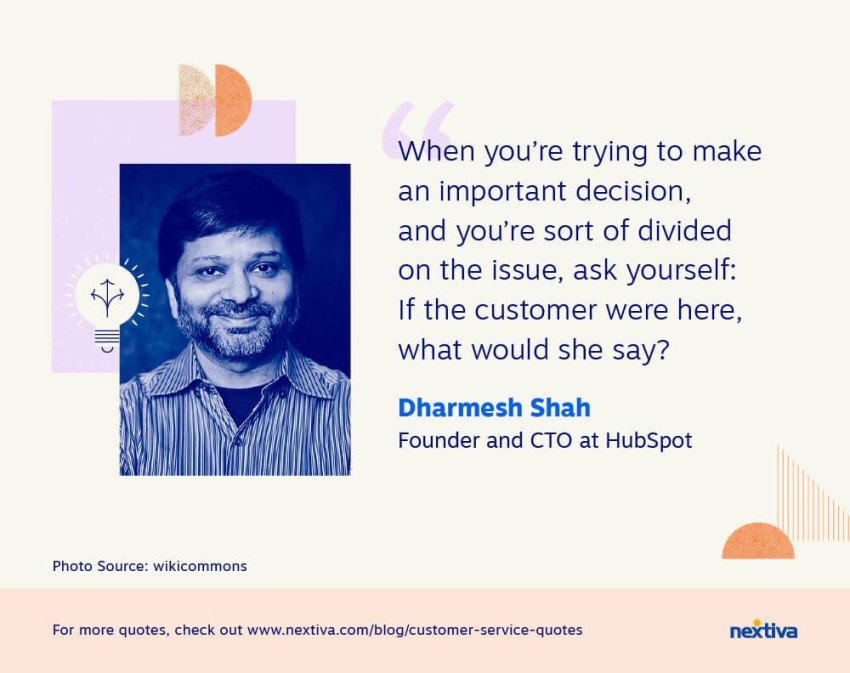
5. Actively seek and use customer feedback
Your customers are your best source of information for improvement but only if you listen! Actively soliciting and, crucially, acting on customer feedback shows that you value their opinions. It’s a two-way street.
Use a variety of feedback channels: surveys (post-purchase, net promoter score (NPS)), feedback forms on your website, direct emails, social media monitoring, and even reviews on platforms like Google. Make it easy to provide feedback — keep surveys short and simple.
Ask open-ended questions that encourage detailed responses (“What is the one thing we could do to improve your experience?”). Then, analyze the feedback to identify trends and patterns.
Act on the feedback, and communicate the changes you’ve made. Let customers know their input made a difference. A simple message like “Thanks to your feedback, we’ve improved our checkout process!” can make a big difference.
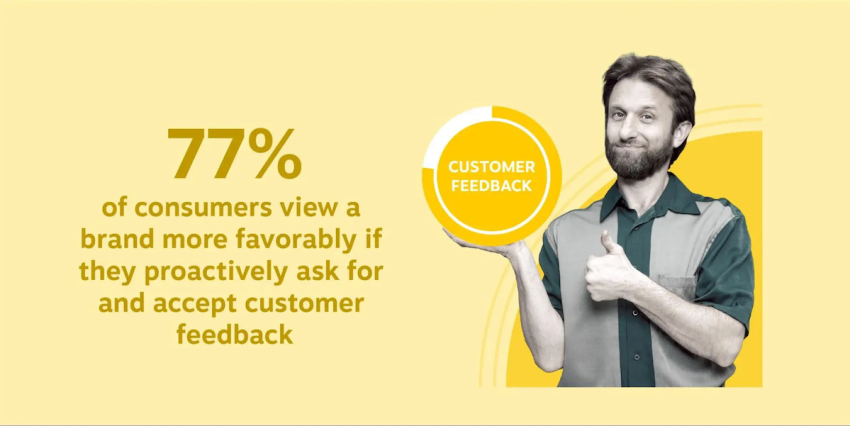
6. Educate and empower customers
A well-informed customer is a happier, more loyal customer. Proactive education reduces support requests and increases the likelihood that customers will get the full value from your product or service.
Create a comprehensive knowledge base with FAQs, tutorials, and troubleshooting guides. Develop a smooth onboarding process for new customers, guiding them through key features. Offer video tutorials — visual demonstrations are often more effective.
Consider hosting webinars or workshops for deeper training. Remember to send regular email newsletters with tips and best practices. You could also create a blog with helpful articles and offer in-app help and tooltips to guide them through your product.
7. Build trust and credibility with social proof
Positive customer reviews and testimonials are incredibly powerful influencers. They build trust and reassure both existing and potential customers.
Actively encourage happy customers to leave reviews on platforms like Google, Yelp, or your own website. Highlight these reviews prominently in your marketing materials and on your website (“See what our customers are saying about us!”).
Feature customer success stories or case studies. Social proof is a key component of effective word-of-mouth marketing.

8. Consistently engage customers
Keep your brand top-of-mind through regular, valuable interactions and share behind-the-scenes content to humanize your brand. Use a mix of business communication channels (email, social media, in-app messages) and tailor your content to show you’re listening and value your customers.
Run contests or giveaways. For example, a monthly photo contest showcasing customers using your product. Provide useful information, be responsive, and be genuine. Consistent engagement maintains interest and reinforces the customer-brand connection.
9. Anticipate customer needs and reach out proactively
Don’t just wait for customers to reach out with problems. Offer proactive customer service.
Use data and customer behavior patterns to anticipate and meet customer expectations or needs. For example, if a customer hasn’t used a particular feature of your product after a certain period, send them a helpful tutorial. If you notice a customer browsing a specific product category, offer them a personalized discount or related product recommendations.
Proactive outreach, a key retention strategy, shows customers you’re paying attention. An example of a proactive message is “We noticed you haven’t used [Feature Y] yet. Here’s a quick guide to get you started.” You could also set up automated alerts for key customer behaviors that indicate potential churn.
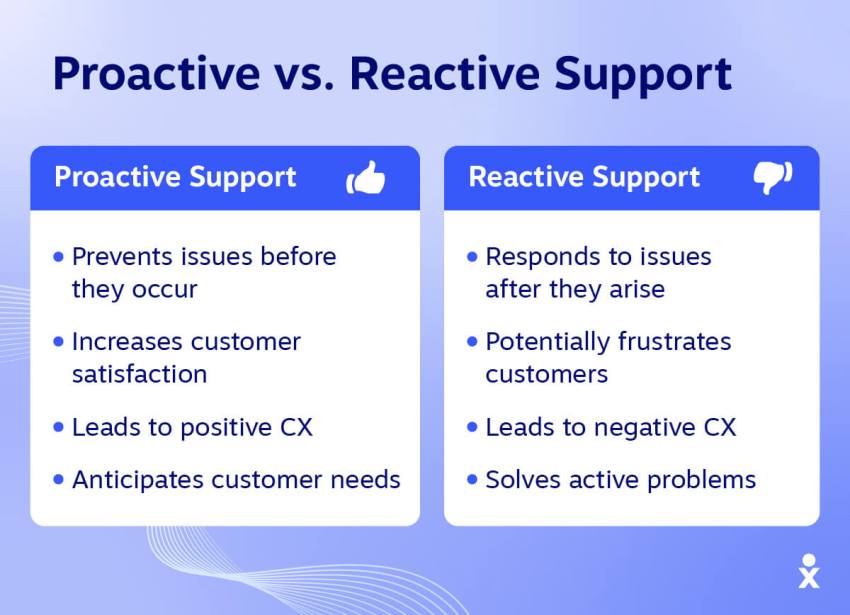
10. Use technology and automation for seamless experiences
Use customer experience technology to make every interaction with your brand as smooth as possible.
Employ AI-powered chatbots for instant customer support, self-service portals for common tasks, and a streamlined checkout process. Automation frees up your human team to focus on more complex customer support queries while providing faster, more convenient service.
Think automated order confirmations, shipping updates, and appointment reminders, which remove friction and make it easier for customers to do business with you.
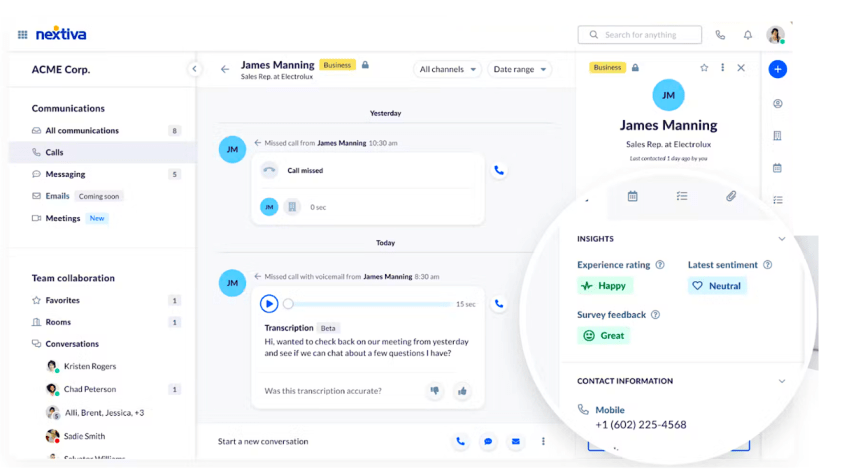
3 Customer Retention Examples & Why They’re a Success
Let’s see successful customer retention strategies in action with some real-world examples:
1. Boosting customer loyalty with rewards and incentives
Starbucks has established a powerful loyalty program that significantly drives customer retention and revenue. Its tiered rewards system incentivizes higher spending and creates a sense of achievement, while personalized rewards, tailored through customer data, enhance relevance and redemption rates.
Integration with its mobile app offers convenience, fast mobile ordering, and a digital wallet. All of these improve the customer experience while fostering community, and strengthening customer bonds and loyalty.
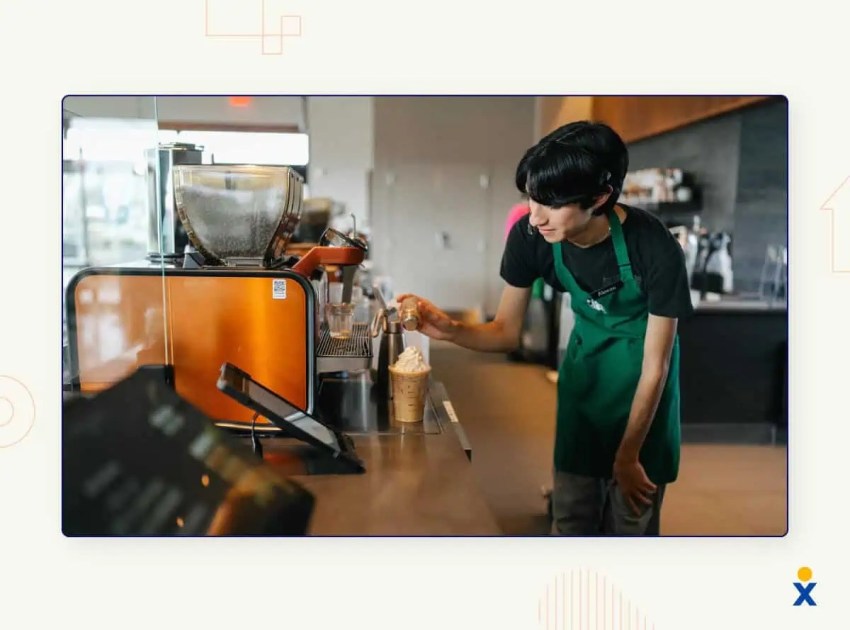
2. Strengthening customer service based on feedback
IKEA’s customer retention strategy focuses on gathering and analyzing customer feedback to build loyalty. By centralizing customer interactions and implementing standardized surveys, IKEA ensures efficient responses and consistent brand experience, leading to improved customer satisfaction.
The company’s data-driven decision-making measures employee performance and allocates resources effectively, allowing continuous improvement and a personalized customer experience.
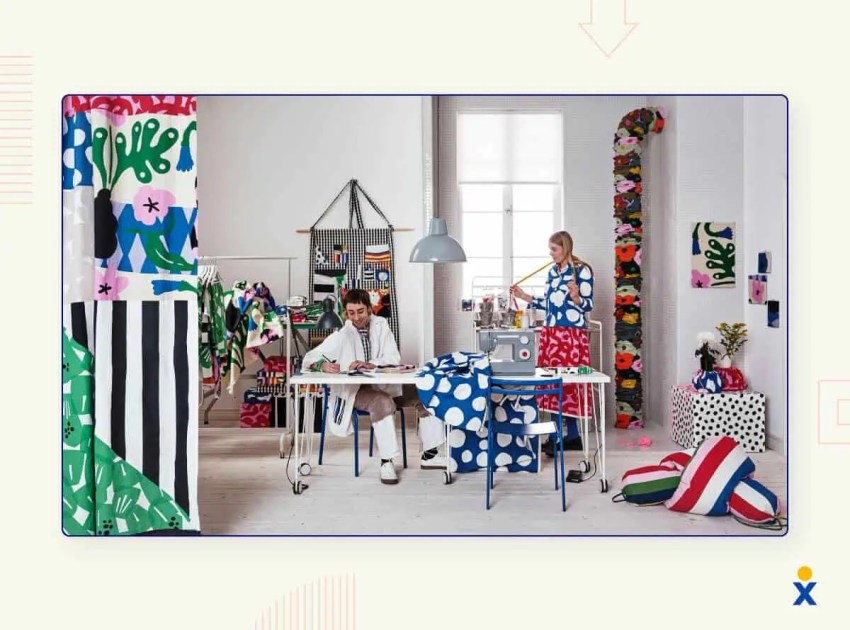
3. Personalizing solutions to engage customers better
Spotify has mastered the art of personalization, making it a cornerstone of its customer retention strategy. Spotify analyzes user preferences and listening habits to create tailored playlists, like Discover Weekly and Daily Mix. It also provides a super popular (and extremely shareable) end-of-year “Wrapped” with metrics for the entire year.
This approach enhances music discovery and keeps customers engaged by recommending new tracks and artists that match their tastes. As a result, users develop strong brand loyalty and are less likely to switch to competing platforms.
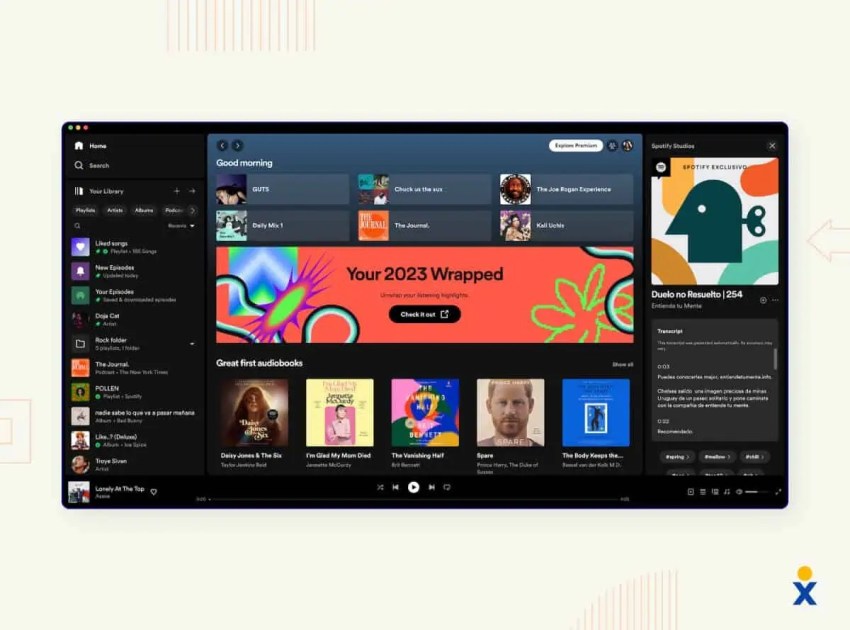
Essential Customer Retention Metrics & Calculation
To measure your customer retention efforts, these are the key retention metrics to track. We’ve included the formulas, but more importantly, we’ll explain why these numbers matter.
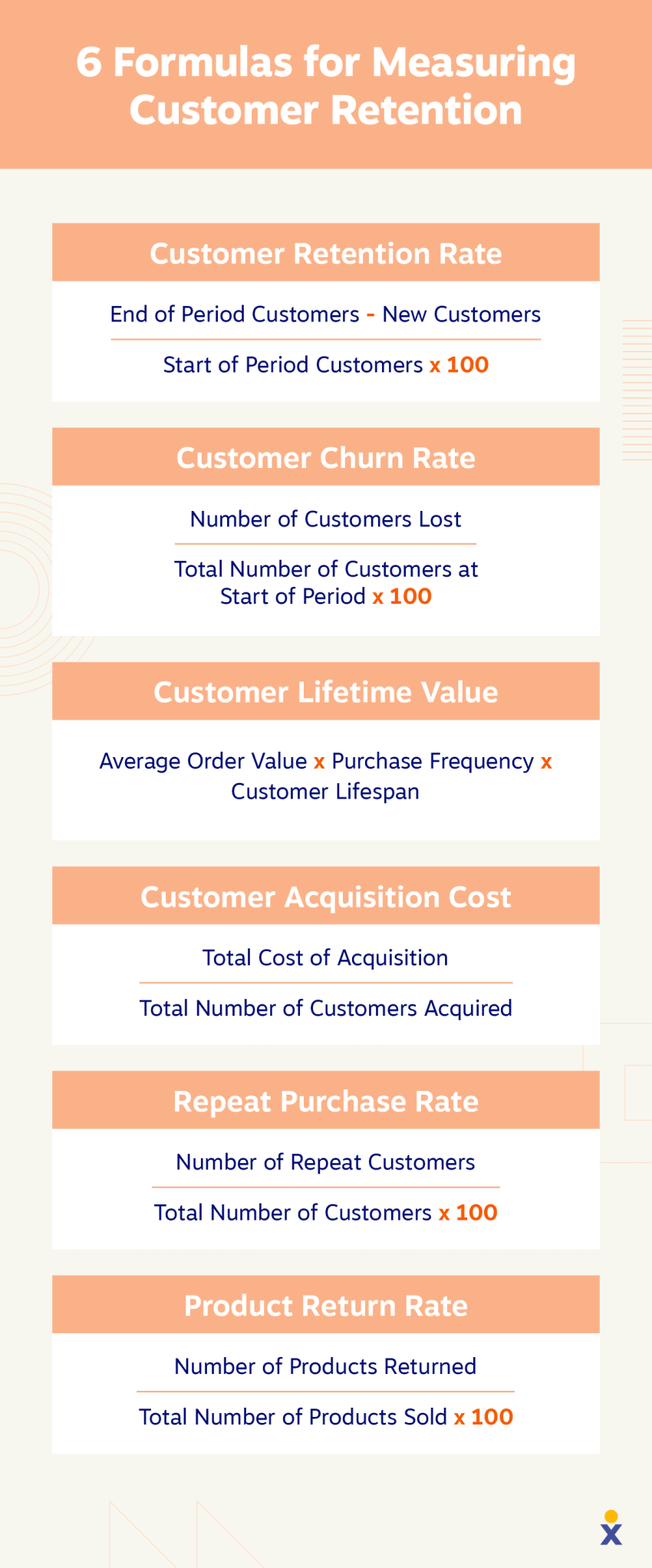
1. Customer Retention Rate (CRR)
CRR is arguably the most direct way to measure customer retention. It tells you the percentage of customers who stay with your business over a set period. A high retention rate means you’re good at keeping customers happy and engaged. It’s much cheaper to retain existing customers than to acquire new ones, so a strong CRR is a sign of a healthy business.
Here’s the retention rate formula:
| CRR = [(Customers at End of Period – New Customers Acquired) / Customers at Start of Period)] * 100 |
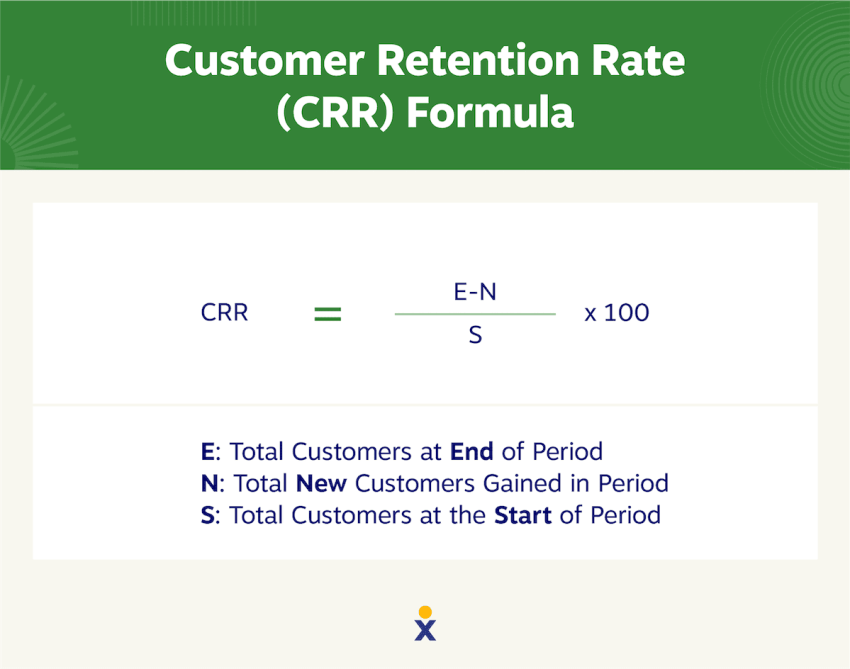
2. Customer Churn Rate
Customer churn is the opposite of retention. It’s the percentage of customers you lose over a specific period. A high churn rate means you’re losing customers faster than you’re acquiring them, which is unsustainable. Tracking churn helps you identify problems and take corrective action. Your churn rate and retention rate should add up to 100% (or very close, allowing for rounding).
| Churn Rate = (Customers Lost During Period / Customers at Start of Period) * 100 |
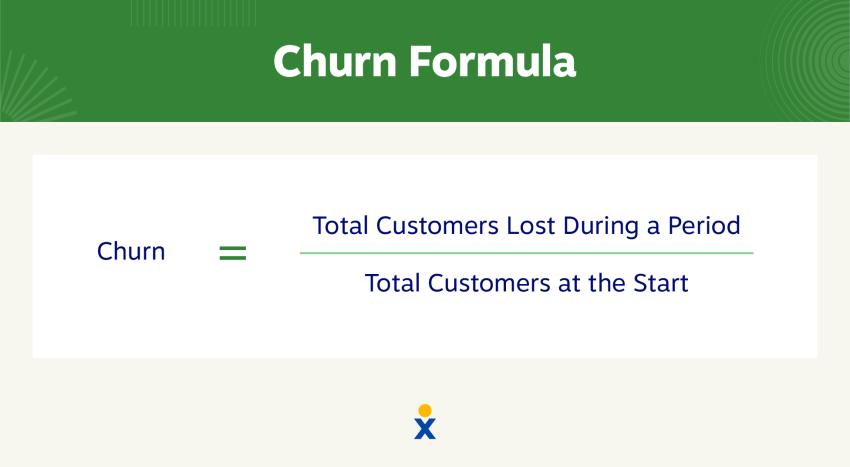
If you lost 20 out of 200 starting customers, your churn rate would be 10%.
3. Customer Lifetime Value (CLTV)
CLTV predicts the total revenue you can reasonably expect from a single customer throughout their entire relationship with your business. It helps you understand the long-term value of your customers. CLTV helps you decide how much to invest in customer acquisition and retention. If your CLTV is high, you can justify spending more to keep and acquire more customers.
| CLTV = (Average Purchase Value) * (Average Purchase Frequency) * (Average Customer Lifespan) |
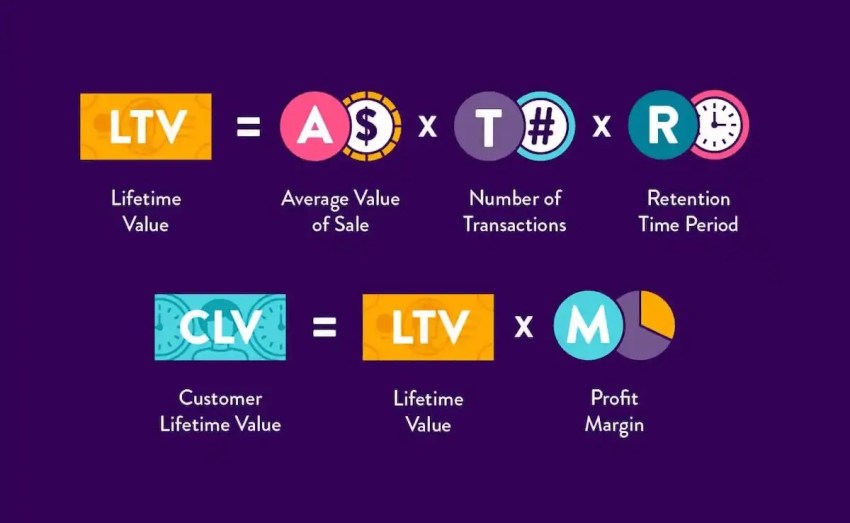
A customer spending $50 per purchase, buying 4 times yearly, for 3 years has a CLTV of $600.
4. Repeat Purchase Rate
Repeat purchase rate measures the percentage of your customers who have made more than one purchase. It’s a strong sign of customer satisfaction and loyalty, especially valuable for e-commerce businesses. Track it and see how it increases as you focus on customer loyalty programs and retention strategies. A high repeat customer rate is a strong signal of a loyal, engaged customer base.
| Repeat Purchase Rate = (Number of Customers with More Than One Purchase / Total Number of Customers) * 100 |
With 200 repeat customers out of 500 total customers, your repeat purchase rate would be 40%.
5. Net Promoter Score (NPS)
NPS measures customer loyalty and how likely they are to recommend your business to others. It’s based on a single survey question. NPS provides valuable insights into customer sentiment and word-of-mouth marketing.
| NPS = (% Promoters) – (% Detractors) |

Promoters (9-10) are loyal enthusiasts who will keep buying and referring others.
Passives (7-8) are satisfied but unenthusiastic customers who are vulnerable to competitive offerings.
Detractors (0-6) are unhappy customers who can damage your brand through negative word-of-mouth.
With 50% Promoters and 20% Detractors, your NPS would be 30. A positive NPS (above 0) is generally considered good, with scores above 50 considered excellent.
Key Takeaways & Best Practices To Improve Customer Retention
Build a loyal customer base that keeps customers coming back because they want to. Here are some final best practices to increase customer retention:
- Build a cross-functional retention team: Bring together representatives from product, marketing, sales, and customer success to ensure a unified, customer-centric approach.
- Tap into customer psychology: Use positive reinforcement to make staying with your brand the easiest and most rewarding option.
- Predict churn proactively: Use data and analytics to spot warning signs early and intervene proactively to address potential issues.
- Make staying the smart choice: Offer a valuable ecosystem of products and services, and allow for personalized experiences that make it difficult for customers to switch.
- Measure aptly: Go beyond the basic retention rate. Track product usage, feature adoption, and how easily customers achieve their goals to get a true picture of customer engagement and boost customer retention.
- Build real relationships: Connect with customers through shared values, authentic communication, and memorable experiences.
- Be honest, always: Own up to mistakes quickly and transparently.
Build Loyal Customers Easier With Nextiva
Implementing these strategies effectively often requires the right tools. A customer experience (CX) platform like Nextiva provides the features you need — from omnichannel communication and personalized messaging to robust analytics — to streamline your retention efforts.
Nextiva empowers you to build stronger customer relationships, deliver exceptional experiences, and drive higher retention and profitability.

We foster relationships based on the connections we make and having the best software, the best hardware, the best suppliers. Nextiva has checked all the boxes for us.
Jason Costello
Surprise and delight customers.
Have conversations with customers the way they prefer to communicate — in a single app.
FAQs
A customer retention strategy is a systematic plan to keep customers loyal to your company over the long term, encompassing all tactics, processes, and programs to reduce churn and increase loyalty.
It varies by industry. While 75-85% is average, subscription businesses often aim for 90%+, and retail considers 65%+ strong. Focus on improvement over time and your industry benchmarks.
Quarterly is generally a good balance, but SaaS companies might benefit from monthly monitoring. Seasonal businesses should consider year-over-year comparisons.
Analyze why customers leave (exit surveys are invaluable) and why your long-term customers stay. Test different strategies with small segments before full implementation.
Ignoring feedback from customers and employees, failing to personalize interactions, providing poor customer service, and not proactively addressing potential issues.


















 Customer Experience
Customer Experience 












